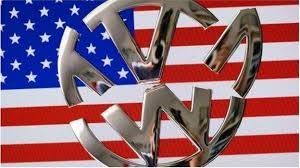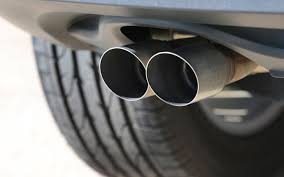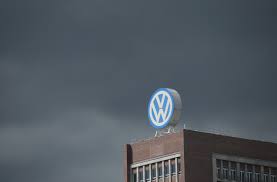Volkswagen: When Car Companies Veer Off Course (Part I of III)
 Corporate misconduct occurs in a variety of forms. Starting with the basic truism – companies act through people, and when companies engage in misconduct it requires the coordination and collaboration of multiple actors. The scope of such misconduct can vary, of course, and the greater the extent of the misconduct, the more actors are involved.
Corporate misconduct occurs in a variety of forms. Starting with the basic truism – companies act through people, and when companies engage in misconduct it requires the coordination and collaboration of multiple actors. The scope of such misconduct can vary, of course, and the greater the extent of the misconduct, the more actors are involved.
The auto industry’s record on safety misconduct is legendary, stretching back to Ralph Nader and the Corvair, the Ford Pinto gas tank explosions, to GM’s ignition switch debacle. We can now add two more notorious events – VW’s emissions testing defeat mechanism and Takata’s malfunctioning airbags.
In breadth, scope and sheer law-breaking conduct, both of these scandals and prosecutions remind us of several important lessons – when a corporate culture is foul, serious public dangers can occur in the auto industry, and regulators and prosecutors need to stay vigilant in monitoring the automobile industry. The public safety implications from auto company misconduct are tangible and result in consumer injury and even death.
In many ways, an automobile company scandal puts in perspective “run-of-the-mill” FCPA enforcement actions where bribery occurs, and reminds us of the range of malfeasance that can occur in industries that sell consumers products that can hurt and kill consumers. A defective food company, like the egg and peanut butter cases from the past few years, along with the GM and automobile scandals, underscore the need for aggressive regulation, monitoring and prosecution.
The Justice Department and related agencies lowered the boom in the last few weeks on both VW and Takata for serious, persistent corporate misconduct, stretching into the upper levels of corporate executives. It is yet another reminder that no matter how effective a compliance program may be operating, if the C-Suite engages in misconduct, a company can quickly fall into a large-scale scandal and misconduct.
Given the important compliance lessons from these recent enforcement actions, I wanted to outline some of the circumstances and the breadth of the misconduct as an important reminder of how corporate misconduct which is generated by senior executives can expand and overwhelm a company, resulting in huge fines, individual criminal prosecutions and serious damage to a company’s reputation and brand.
In today’s post, we review the VW scandal. In part II, we will review the Takata scandal, and in Part III, we will discuss observations, lessons learned and trends for compliance work.
The VW Emissions Cheating Scandal
VW agreed to plead guilty to three criminal counts and pay a criminal fine of $2.8 billion, along with civil settlements with the US government of $1.5 billion, for a total of $4.3 billion, for its long-running scheme to sell 590,000 diesel cars in the United States with defeat devices to cheat on emissions tests required under federal and California laws. VW also agreed to plead guilty lying and obstructing justice to further the criminal scheme. A corporate monitor was also appointed to serve for three (3) years.
Along with the corporate resolution, six individuals were indicted for their roles in a multi-year conspiracy, including one individual, Oliver Schmidt, who was recently arrested when entering the country in Miami, Florida. The other 5 defendants reside in Germany and are unlikely to be extradited to the United States.
The underlying facts are stunning in their magnitude and pervasive commitment to ensuring that VW diesel software was able to defeat emissions standards and testing.
Beginning in 2006 and continuing until 2015, VW engineers, acting with the knowledge and direction of senior executives, secured software and designed its diesel engines to cheat and defeat emissions testing systems in the United States. The cheating software was implemented at the same time that VW promoted its “clean diesel” engines in various new car models.
The cheating software detected when the engine was being tested and modified the emissions of nitrogen oxide. When the car was operating normally on the road, nitrogen oxide emissions would range much higher above the standard, sometimes as much as 35 to 40 times as high as the specific standard.
Interestingly, VW engineers and other staff raised concerns about the scheme and specifically communicated to the senior executives their concerns about the software. Despite raising these concerns in various contexts, the senior executives directed the engineers to continue the program and to keep the matter confidential.
 The scheme started to unravel in 2012 when hardware failures led to malfunctioning emissions systems. Additionally, university testing in West Virginia identified the different performance of the emissions system when undergoing testing from normal operation of the vehicles. As a result, federal and California regulators investigated the issues.
The scheme started to unravel in 2012 when hardware failures led to malfunctioning emissions systems. Additionally, university testing in West Virginia identified the different performance of the emissions system when undergoing testing from normal operation of the vehicles. As a result, federal and California regulators investigated the issues.
VW’s misconduct continued when senior executives directed officials responding to regulators or presenting information to regulators to provide false explanations and reasons for the issues identified by the regulators. Eventually, a VW employee failed to follow the cover up direction, and disclosed the emissions test cheating devices.
VW’s misconduct, however, did not stop there. Even after a litigation hold was announced within the company relating to the scandal, VW executives and an attorney destroyed and directed others to destroy incriminating documents. Most of the documents were recovered during the investigation.















1 Response
[…] Read Full Article: Volkswagen: When Car Companies Veer Off Course (Part I of III) – Corruption, Crime & Compl… […]